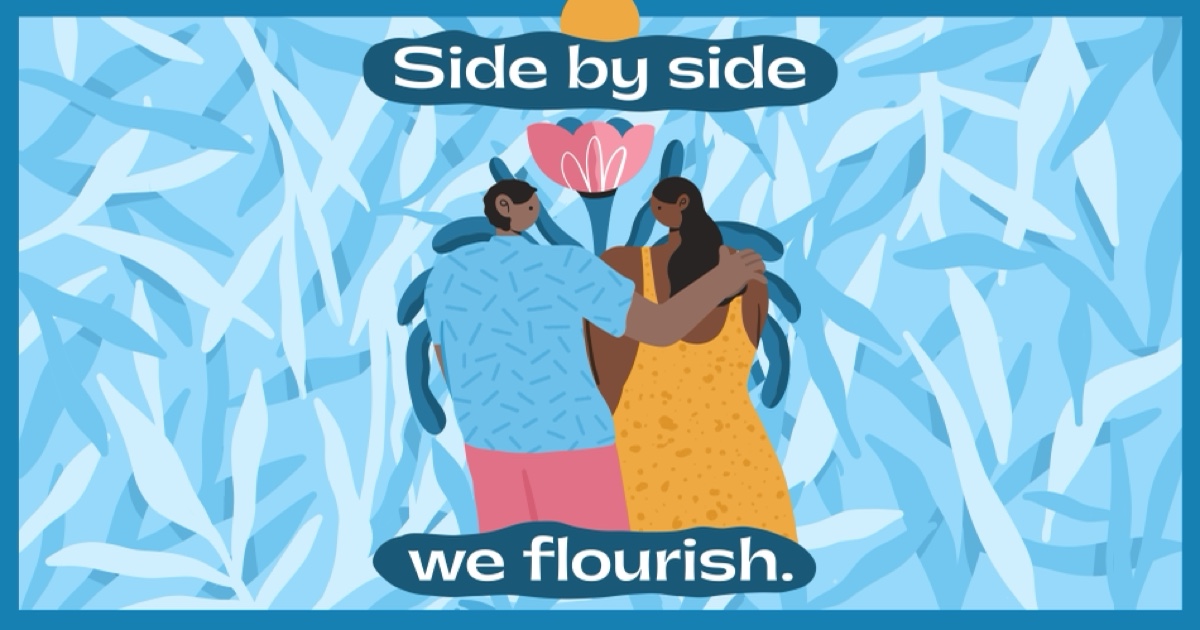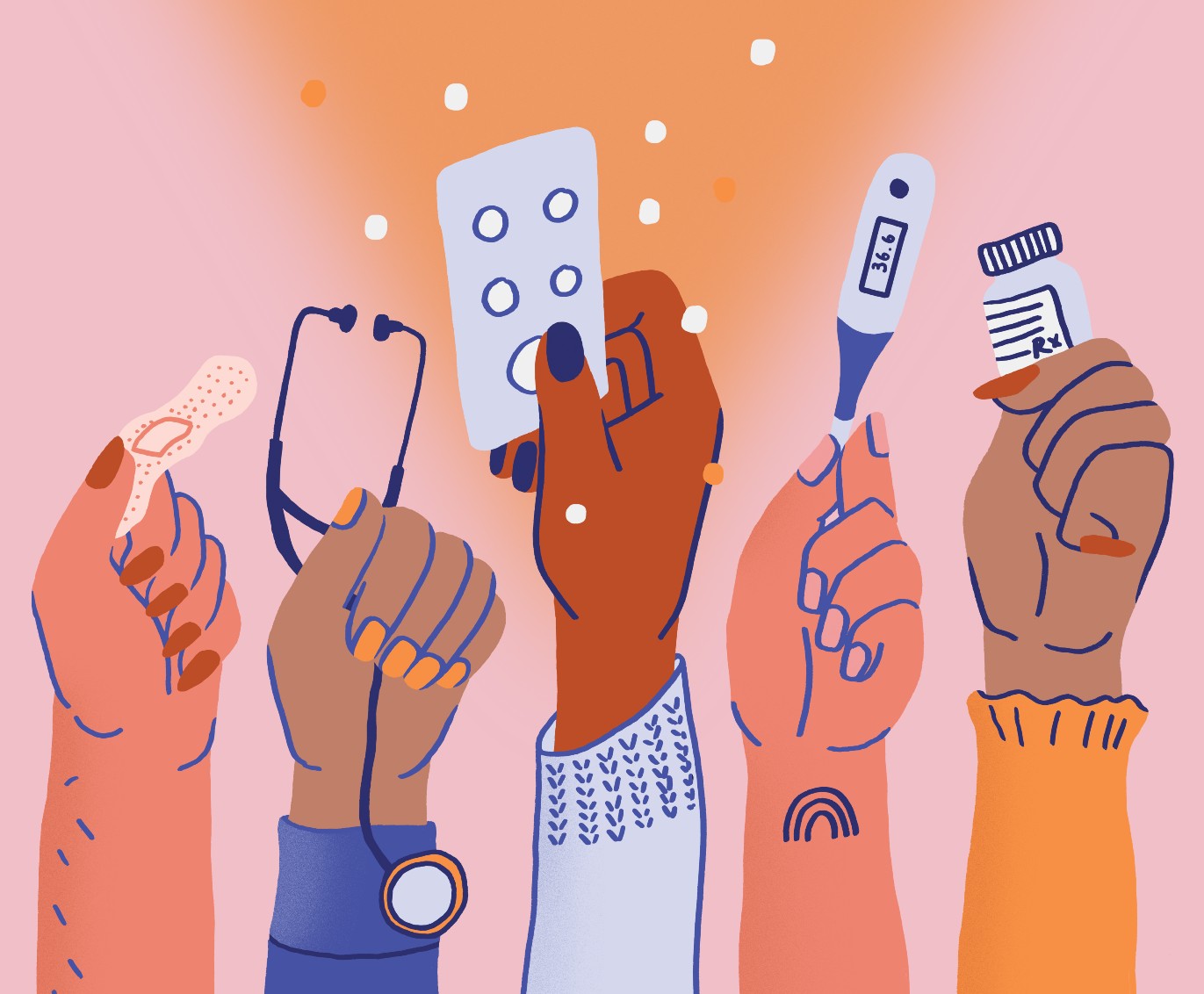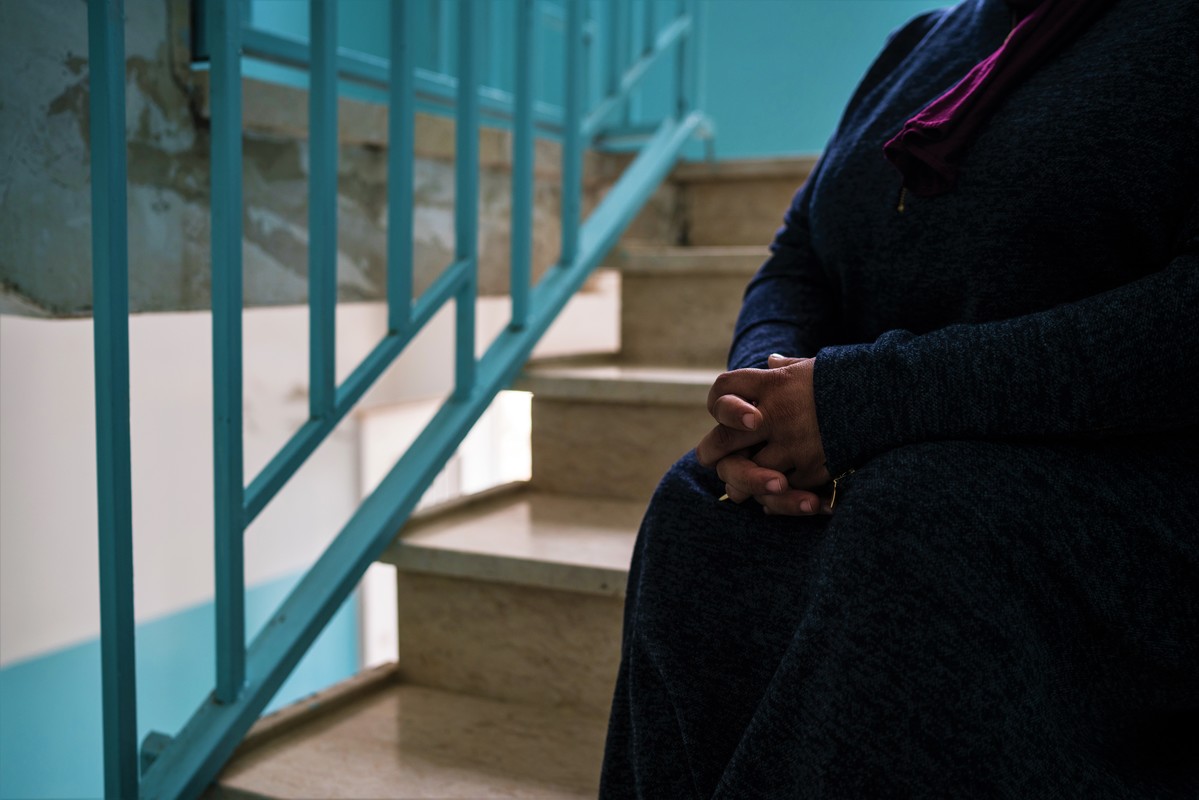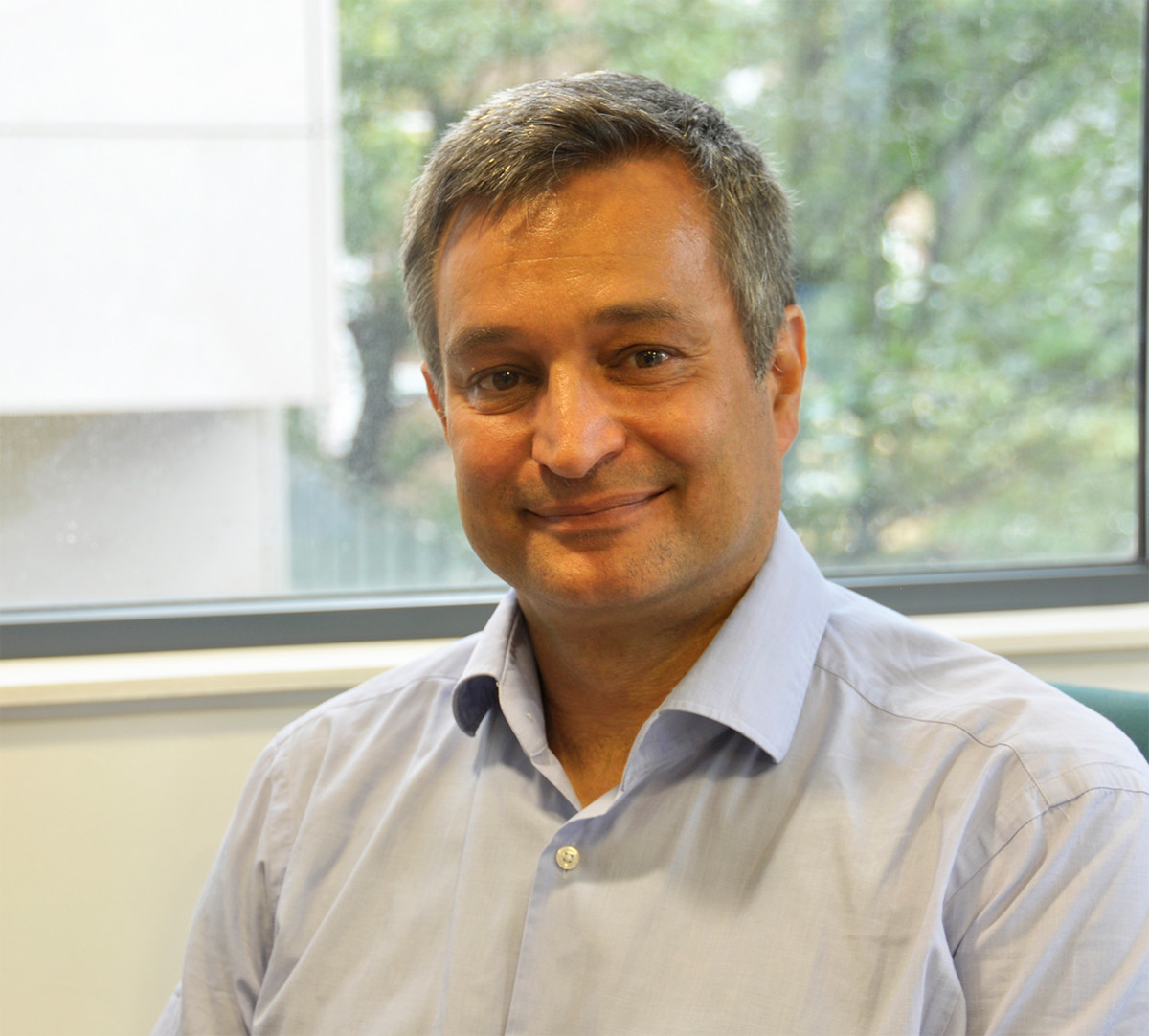
Dr Bermejo has more than 20 years’ experience as a senior executive in global federations, working across HIV and AIDS, humanitarian issues and health policy. He qualified as a medical doctor from the Universidad Complutense de Madrid and holds an MA in Public Health from the University of Leeds.
Articles by Dr Alvaro Bermejo

Fighting Back and Coming Together: Open Society Foundations and IPPF Take a Stand
Progressive values are up against a transnational network of anti-rights and conservative forces and a financial infrastructure that contribute billions of dollars in funding to spread vitriolic narratives, promote regressive legislation, and attack our rights to control our own bodies. We find examples on every continent: the collapse of Roe v Wade in the US, the near total ban on safe abortions in Poland, the criminalization of homosexuality in Uganda, the erasure of women from public life in Afghanistan. These attacks are designed to rip away hard-won rights, and to divide our communities by attacking selectively depending on race, caste, religion, gender, sexuality, and class. They build strength in our division. So too do they exaggerate such vitriolic narratives to divert attention from issues that can unite humanity against illiberal forces—issues like climate change, the cost of living crisis and soaring inequality. They are dominating conversations in national and international forums, and winning elections with their divisive rhetoric. It is an explosive moment in history. As Pulitzer Prize-winning writer Arundhati Roy warned in a speech earlier this year: “Democracy is being systematically disassembled. So much so that in many countries, little more than the rituals remain.” Which is why partnerships are key for uniting our diverse movements against their hatred. Bold feminist movements and leaders are already at the forefront of these struggles to protect democratic values. The Open Society Foundations and IPPF partnerships, among others, counter anti-rights movements and supporting sexual and reproductive health and rights by helping LGBTQI persons to become resilient against anti-democratic powers. As the criminalization of sexuality and gender spreads internationally—we call for expanded solidarity and aligned action with multi-stakeholders. Many of us see ourselves across these arbitrary divides, and we recognize we must support one another and not remain trapped in an endless culture war with those who would tear down democracies, communities, and people to maintain patriarchal dominance. They’re reverting to the lowest tactics to criminalize and obliterate—and we must do more. Sexual and reproductive justice is not only the way to contain “macho politics” and its attack on women’s bodies, it is also the path to systematically ensure a future where communities and those who have been historically marginalized can unite and thrive in democratically just societies. Banner illustration by Yessiow Nur Mulianawati for The Greats x IPPF

Sexual and Reproductive Health in 2023 and Beyond
For many in development, the last two years have been frantic, with organisations working around the clock to ensure people can access the care and support they need despite an ever-changing and increasingly challenging global climate. For sexual and reproductive health and rights (SRHR), we have seen the devastating consequences of political, social and economic turmoil on women and girls’ bodies, with existing inequalities exacerbated by continuing humanitarian crises, including the pandemic, war, famine and environmental destruction. Alongside many in the sector, we also face reduced funding and commitments from global leaders amid growing threats from a sinister opposition from those actively attacking people’s rights and freedoms. For the International Planned Parenthood Federation (IPPF), which recently celebrated its 70th birthday, the changing landscape of SRHR necessitates radical transformation. 2023 brings fresh energy and a bold new strategy so we can stand up forcefully and fearlessly to support those excluded, locked out and left behind. If SRHR experts across the sector are to galvanize support for human rights, invigorate the development space and deliver with impact and purpose for generations to come, there are five steps we must take: Foster global solidarity If 2022 taught us anything, it’s that our freedoms must not be taken for granted, hammered home by the reversal of Roe vs Wade and the loss of 50 years of constitutional abortion rights across the U.S. But tough times create resilient people, and we cannot let the opposition define us. As we work to ensure access to SRHR regardless, building bridges inside and outside our movement is more critical than ever, bolstering the fierce support that already exists for sexual and reproductive health and abortion rights worldwide, fostering solidarity to win hearts and minds, and reinforcing the commitment to human rights for all. And we are not in this alone. Across the sector, our work intertwines with struggles for climate survival, social justice and equality. Development organisations can unite through shared values to continue supporting and transforming communities and countries. Stand up and confront tough challenges to deliver more equitable care The last two years have been a period of reckoning for many in the sector, highlighting pervasive oppression and injustice within our organisations and the services we deliver. As global human rights leaders focused on equality, empowerment and ending discrimination, we must champion social justice principles, addressing the toxic legacies of longstanding racism, sexism and homophobia in the workplace and beyond, and pushing for cultural change to shift existing imbalances in power. For IPPF, this has culminated in our Anti-Racism Declaration of Intent, a statement of public accountability to dismantle racism and become an anti-racist organisation by 2028. By operating within frameworks built on equity, diversity and inclusion and upending attitudes and ways of working embedded in the development sector for too long, organisations can deliver better and more equitable care for all. Move the sexuality agenda Sexuality is about more than sex, sexual attraction and reproduction. It is about who we are, who makes decisions about our bodies, and the freedom to decide how we live our lives. It is about love, pleasure, well-being, morality, equality and health. To make sexual and reproductive rights truly universal, sexual and reproductive health experts must broaden their understanding of sexuality, advocating for a world that celebrates sexuality in all its diversity and challenging outdated or toxic norms that strip away dignity. See young people as drivers of change As the most diverse generation the world has ever known, young people are drivers of change, with youth movements reflecting the intersectionality, cross-border working, and translation of ideas across the digital space that many organisations strive for. Young people played a crucial role in creating IPPF’s strategy, and as organisations fight to stay afloat in this period of global transition, attracting, retaining and working with young people to shape and deliver the future is critical to delivering our missions. Champion leadership in the Global South Development is built on partnerships, solidarity and sharing. From 2016 to 2022, IPPF’s Member Associations delivered more than 1 billion cumulative SRHR services and contributed to fantastic global advocacy, from expanding abortion access in Benin and Latin America to guaranteeing free long-term contraception in Ghana. Although some donors and governments stepped up to the plate, we found ourselves in challenging negotiations with others, culminating in reduced funding and global commitments. Moreover, while historically, leadership has been dominated by nations in the Global North, the last few years have turned that on its head. Recognising and championing Global South leadership is imperative to building the foundations for sustained long-term growth. Global organisations can and must use their capabilities to strengthen and empower movements and organisations in the Global South to collaborate with supportive national governments, local philanthropists, sister organisations and the private sector. By working together, we can secure domestic funding, support local advocacy, fill gaps and meet need. Looking to the future Elise Ottesen Jensen, Co-Founder of the International Planned Parenthood Federation, said, “I dream of the day when every newborn child is welcome, when men and women are equal, and when sexuality is an expression of intimacy, joy and tenderness”. The next five years will make or break development. While 2023 sets out on a familiar path, the sector must pivot in a new direction over far more brutal terrain to deliver urgent and purposeful action. By working together for the greater good, we can create a more inclusive, intersectional, and feminist world for all. This piece was originally published for Bond. Main image by Tanya Shyika for IPPF x Fine Acts

Sexual violence continues in conflict and so must our care for survivors
In the humanitarian sector, we are often asked why sexual and reproductive healthcare is necessary in situations of conflict and fragility. The answer is clear. Women and girls all too often bear the brunt of humanitarian crises. Lacking the usual protective measures such as the family unit or home, women and girls become more vulnerable to sexual violence. It can be more dangerous to be a woman than a soldier in armed conflict. Increased risk of trafficking and rape It is estimated that tens of thousands of women and girls are subjected to sexual assault in conflict situations each year around the world. We know that in times of crisis, girls are more likely to be married off at a young age, and women and girls are at increased risk of trafficking and rape. Far too often, rape is used as a formal tactic of war. On the other hand, we cannot forget that humanitarian crises often lead to collapsed health systems, which means there’s less available access to sexual and reproductive healthcare and services. Or, in other words, the difference between life and death for a survivor of rape. Sexual and reproductive health is a key component of the medical care needed for a rape survivor, and should include diagnosis and treatment of sexually transmitted diseases and HIV, the clinical management of rape medical care for rape survivors, the provision of safe abortion care, and - in cases where women have been forced to get an unsafe abortion due to the lack of any other option - post abortion care. But sexual and reproductive healthcare in conflict settings is often overlooked and remains under resourced. We desperately need all actors – international, regional, and local – to be united in their support. Combatting SGBV Since 2009, reproductive health has been recognised by the UN Security Council with Resolution 1889 explicitly referencing the need to ensure women and girls’ access to reproductive health services. This represented a major milestone and commitment by governments to combat SGBV and ensure the provision of timely assistance to survivors of sexual violence in situations of conflict. We need to break down the silos between the gender-based violence and sexual and reproductive health sectors, in both the development and humanitarian space, to ensure comprehensive, high-quality services are delivered to survivors in a coordinated, holistic manner from the first day of every emergency response. Women and girls need to be able to control their reproductive health decisions and access services they need free from coercion. IPPF has been operating in humanitarian crises for decades. In these settings our 160 plus member associations and collaborative partners offer lifesaving sexual and reproductive healthcare, which is often a gateway to treating survivors of rape. We focus our efforts here because we believe a woman who has already endured rape should not then face the further injustice of being denied access to the sexual and reproductive healthcare that will aid in her recovery. A global pledge This week, a global pledging conference is taking place in Oslo, Norway, to raise funds and support for sexual and gender-based violence in emergencies. This support must go beyond funding and requires a fundamental shift in the perception of sexual and reproductive healthcare by key stakeholders in the humanitarian system. Sexual rights and bodily autonomy are human rights, and humanitarian actors have an obligation to uphold these rights in crisis settings. The pledging conference in Oslo provides a timely opportunity for the global community to band together for survivors of rape in crises and show that we will continue to defend their sexual and reproductive safety and dignity. This article first appeared on Thomson Reuters Foundation news - 23 May 2019









